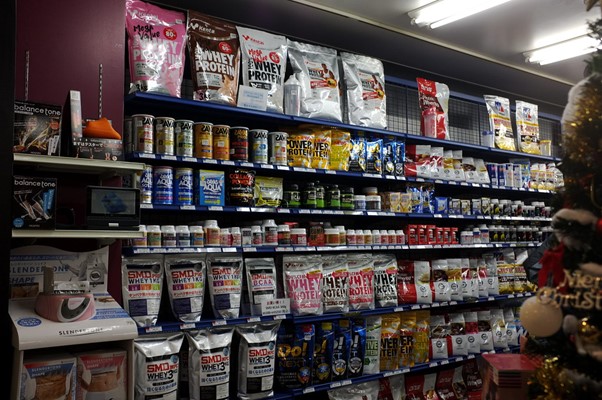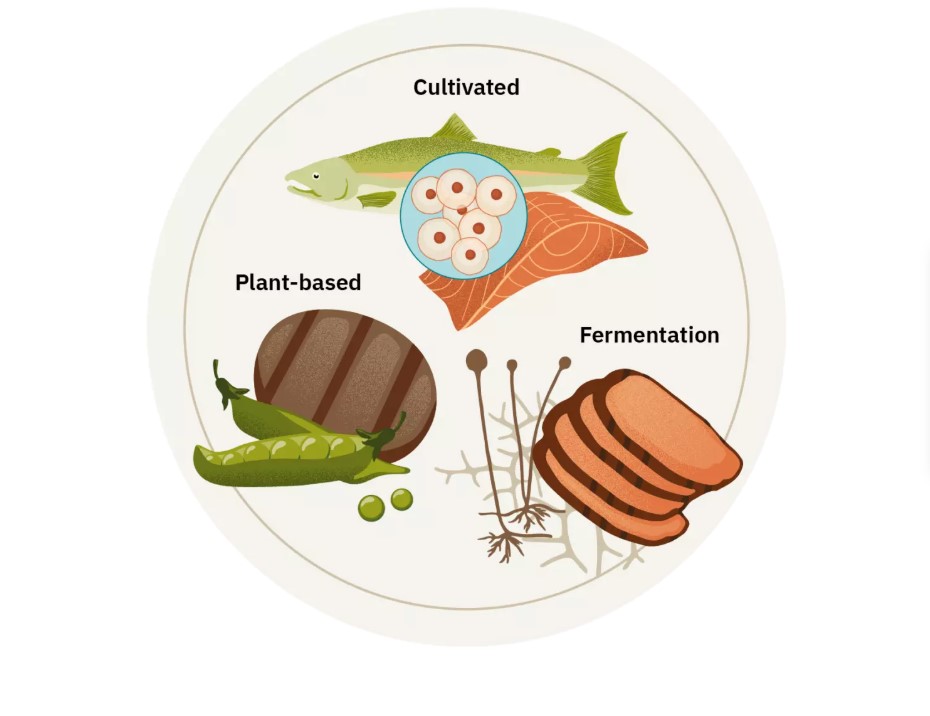Have you noticed the appearance of a new section in supermarkets in the last few years? I am talking about the ‘protein’ shelves. Proteins are essential macronutrients that support growth, development and repair. Dietary recommendations in the UK suggest adults should consume at least 45 (female) and 55.5 (males) grams of protein per day. However, animal meat is the main source of protein in our diets, and its production is one of the largest contributors to climate change. We need new sources of protein to keep up with demand and we need them to be sustainable, healthy and resilient. How can molecular engineering help with that?

Protein demand is increasing
By 2030, the demand for protein in the UK is estimated to rise by at least 5%. Globally, protein consumption is expected to nearly double by 2050. Developing countries and shifting diets into protein-rich ones are the main drivers for this increase.
Current protein production methods are damaging the planet
The highest source of protein in our current diet are animal products, including beef, pork, chicken breast, salmon, milks and eggs. These products are mostly obtained through industrial animal farming which generates 11% of global carbon emissions while also requiring large amounts of water and land. 75% of agricultural land is used for meat production meaning that 75% of deforestation is driven by agriculture. Soil degradation and loss of biodiversity are also consequences of animal farming.
In the UK, the Climate Change Committee previously suggested decreasing our consumption of meat by 35%. In the last year, however, they have updated this recommendation to 40% highlighting the damage caused by agriculture but also the potential benefits of change.
Alternative proteins
In 2021, almost 30% of EU consumers identified as ‘flexitarians’. A flexitarian mainly eats a plant-based diet but occasionally would also consume meat or dairy products. This approach is important when we talk about transitions, rather than sudden changes, in the way we approach what we eat.
An increase in protein demand, but how are we going to produce it?
– Plant-based proteins are those which originate from plants. They are the most popular alternative.
– Microbial foods are those generated through fermentation. Besides its high content in protein, they also are high in fibre and low in saturated fats.
– Algae-based proteins, including chlorella and spirulina, are rich in vitamins, essential fatty acids and amino acids.
– Cultivated meat, also known as lab-grown meat is made using animal cells. You can learn more about cultivated meat in some of our previous blogs (Future of Food, Rise of Cultivated Meat).

It is important to make alternative proteins a better choice, not a compromise, where sustainability is sweeter, rather than a sacrifice.
These alternatives have great potential but producing them will require adequate regulation and investment in infrastructure. Our latest briefing paper focuses on microbial foods and analyses all the aspects required to build a successful and sustainable sector in the UK. There is still time to sign up for the launch event! Follow this link: Briefing Paper Launch: Microbial Food as a Sustainable, Healthy, and Resilient Source of Nutrients for the UK | Events | Imperial College London